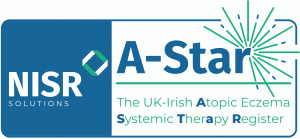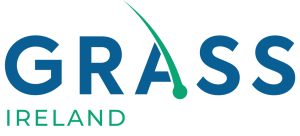Our Registries

The Irish Epidermolysis Bullosa (EB) Registry was established in 2020 as a subcommittee of NISR to identify, collect, record, store and analyse information relating to the prevalence and incidence of EB in Ireland.
EB is a rare genetic skin fragility condition, resulting in blistering and fragility of the skin and mucosal surfaces. The phenotypic spectrum is extremely variable between subtypes. Symptoms range from intermittent localised skin blistering to extensive wounds with associated pain and significant morbidity and mortality. Complications include pain, itch, skin contractures, malnutrition, infection and premature death due to cutaneous malignancy or sepsis. EB has a major impact on the health and wellbeing of those living with the condition. Better information on the number of people living with EB, and their health status is needed.
The Irish EB Registry which was launched in 2020 will collect and analyse health information of Irish EB patients for years to come. This data will be collected at the patient visit to Our Lady’s Children’s Hospital Crumlin and St James Hospital, Dublin. The information will allow clinicians to examine how symptoms and treatments change over time and check whether EB treatments continue to work well and safely over many years. The information could be used to provide an EB information service to governmental agencies, the health service, hospitals and health care professionals, and help improve planning and delivery of care and services for people with EB. It will also provide an important source of information for future research.
The EB registry is an observational study of the EB patient population in Ireland. By collecting and analysing information on people with EB in Ireland, we can better understand their health and wellbeing, and the benefits of treatments provided. For people with EB agreeing to take part, the registry will collect information on their diagnosis, their health status at each hospital visit, heights, weights, blood test results, procedures, medicines and treatments, health complications, healthcare service use and information about how the condition and treatments impact patients’ quality of live. The EB registry is an encounter-based registry, meaning that information will be recorded from each interaction for EB care with the EB team as part of their usual standard of care.
The EB Registry platform will be provided by software partners OpenApp. The OpenApp Registry™ is an open source platform for developing patient, disease and pharmaceutical drug registries, and its core technology has been deployed in multiple registries across Europe. The platform supports highly secure web based data collection, reporting, sharing and anonymization of datasets. The registry has the potential to be expanded and further developed to also operate as a clinical management system to support EB clinical care. The data model is patient-centred and its workflows are clinician-centred.
This information could be used to examine how symptoms and treatments change over time and check whether EB treatments continue to work well and safely over many years. Information on EB could be provided to governmental agencies, health care providers and payers, and help improve planning and delivery of care and services for people with EB. It will also provide an important source of information for future research and advocacy.
How do I register?
If you do decide to take part, you can find out more in multiple ways:
- Ask your EB doctor or EB care team.
- Phone your treatment centre speak to an EB nurse.
- Email registry@nisrsolutions.com.
This registry was developed and supported in part by DEBRA Ireland.

A-STAR is an observational study running in the UK and Ireland, seeking to assess the short and long-term safety and efficacy of systemic immuno-modulators for people of all ages with atopic eczema or atopic dermatitis (AD). We will also look at the ‘real life’ cost of treating eczema, examining how much these therapies cost, compared to how well they work. Once patients sign up to participate in A-STAR, we will follow their medical care via their local dermatologists.
The overall aim is to help clinicians in their treatment decisions of patients with atopic eczema and through this to improve patient care.
For further details please visit or sister registry at: A-STAR Registry UK Site
How do I register?
If you do decide to take part, you can find out more in multiple ways:
- Ask your AD doctor or AD care team.
- Phone your treatment centre speak to an AA nurse.
- Email registry@nisrsolutions.com.
 The Global Registry of Alopecia areata disease Severity and treatment Safety or GRASS
GRASS is an organisation which runs a disease registry study that records, stores and analyses relevant data about the health and medical treatment of people living with Alopecia Areata (AA). It is a member of a developing global network of connected AA patient registries called GRASS-International. This group formed after an extensive international project that included patient organisations, expert physicians, scientists and regulatory and industry representatives.
A pilot of GRASS was launched internationally in 2022. This stage has been completed and the registry is now fully launched with ongoing development and optimisation as required.
You may be invited to take part in this AA Registry because you have AA. Before you decide whether to take part, it is important that you understand why the registry has been setup and what it will involve.
Some examples of how your data may be used in an international AA registry:
The Global Registry of Alopecia areata disease Severity and treatment Safety or GRASS
GRASS is an organisation which runs a disease registry study that records, stores and analyses relevant data about the health and medical treatment of people living with Alopecia Areata (AA). It is a member of a developing global network of connected AA patient registries called GRASS-International. This group formed after an extensive international project that included patient organisations, expert physicians, scientists and regulatory and industry representatives.
A pilot of GRASS was launched internationally in 2022. This stage has been completed and the registry is now fully launched with ongoing development and optimisation as required.
You may be invited to take part in this AA Registry because you have AA. Before you decide whether to take part, it is important that you understand why the registry has been setup and what it will involve.
Some examples of how your data may be used in an international AA registry:
- To judge which treatments are of greater benefit, how care is improving
- To identify new trends, for example for example an increase in a complication
- To provide information for planning future services for people with AA
- To identify and learn from countries with better patient outcomes
- To identify patient groups who could be approached to take part in particular research studies. Contact for this would only come through your AA care team.
- Ask your AA doctor or AA care team.
- Phone your treatment centre speak to an AA nurse.
- Email registry@nisrsolutions.com.
